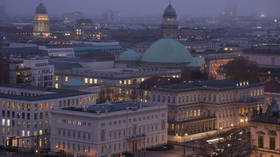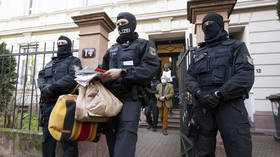Ukraine conflict ‘transformed’ Germany – ambassador

The conflict in Ukraine has fundamentally transformed Germany for the better, Berlin’s envoy to Washington has argued, while acknowledging her country has been far more affected by the economic backlash from anti-Russia sanctions than the US.
Emily Haber opened an op-ed, published in the Washington Post on Monday, with a description of “dimly lit” German airports and streets, cold homes and public buildings, rising gas prices and inflation running at 10%. The country also has to deal with over a million displaced Ukrainians, who are entitled to full health insurance, social benefits, housing and education at the government's expense.
“Increasingly, it is Europe (and not least Germany) that is bearing the brunt of the sanctions, not the United States,” writes Haber, before pivoting to argue that this doesn’t really matter.
German suffering is “almost nothing” compared to the hardships of the Ukrainian people, according to Haber, but more importantly, “our national psychology is undergoing a profound transformation.”
She calls the decades-long assumptions underlying Berlin’s policies, mainly that trade would promote “stability, transparency and, eventually, systemic change” an illusion that has been dispelled by the conflict.
“To be sure, there are dissenting voices, and there is discontent brewing in some parts of the country,” the ambassador notes in passing.
Germany has cut itself off from Russian energy imports, increased the export of weapons – mainly to Ukraine – and amended its constitution to create a 100 billion-euro fund for NATO-mandated “defense spending.”
Chancellor Olaf Scholz’s decision to increase military spending in February is the “most significant turning point in decades” for Germany, according to Haber. Reunification of East and West Germany in 1990 only “vindicated past strategic decisions and did not require a break with them,” unlike now.
While admitting that all of this may seem irrelevant to Ukraine – whose priorities ought to matter more, she suggests – Haber is still proud of the “real and lasting” change Germany has achieved “in such a short time and at great psychological and material cost.”
“And we are happy to see that it is deepening our already close ties with our allies – first and foremost the United States,” she concludes.













